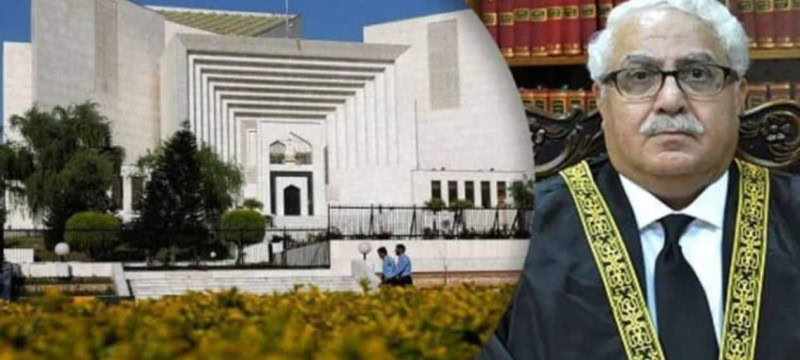In a recent development, Supreme Court Justice Sayyed Mazahar Ali Akbar Naqvi countered the accusations made against him in a fresh show-cause notice, deeming them “baseless” and “lacking evidence.” Justice Naqvi moved a petition before the apex court, urging the dismissal of the notice issued by the Supreme Judicial Council (SJC).
The SJC, currently deliberating multiple misconduct complaints against Justice Naqvi, issued a revised notice on November 22, stipulating a two-week period for the judge to present his defense.
In response, Justice Naqvi not only filed a fresh petition before the Supreme Court but also penned a letter directed to Chief Justice of Pakistan Qazi Faez Isa, Justice Sardar Tariq Masood, and Justice Ijazul Ahsan, urging them to expeditiously assign the petition to a bench excluding members who might recuse themselves from the matter.
The letter highlighted that according to sections 3 and 7 of the Supreme Court (Practice and Procedure) Act 2023, the committee of senior judges is responsible for promptly scheduling hearings for petitions filed under Article 184(3) or those seeking interim relief.
Justice Naqvi emphasized that despite filing two petitions challenging SJC proceedings on November 20 and 30, along with an application for interim relief, the SJC persists in pursuing actions against him based on what he termed as “frivolous allegations.”
Represented by a panel comprising eminent lawyers Sardar Latif Khan Khosa, Khawaja Haris Ahmed, Makhdoom Ali Khan, and Barrister Syed Ali Zafar, Justice Naqvi’s petition argues that breaches of the Code of Conduct for judges do not necessarily constitute misconduct as per Article 209(5) of the Constitution.
Furthermore, the petition contests the legitimacy of audio leaks, stressing the necessity of forensic verification to authenticate their source, content, and date.
The petition asserts that the scrutiny of the judge’s sons’ property acquisition lies beyond the SJC’s jurisdiction, particularly when they are independent professionals with foreign qualifications and resources, questioning the legitimacy of initiating proceedings on this matter.
Moreover, the petition contends that the SJC’s hastiness in the proceedings before addressing the judge’s constitutional objections denies him a fair hearing, violating his fundamental rights enshrined in the Constitution’s various articles.
Additionally, the petition condemns the ongoing campaign against the judge, labelling it as a direct assault on the judiciary’s independence, violating the Constitution’s provisions for access to justice.
Justice Naqvi’s petition raises concerns over the disclosure of his income tax returns to complainants, citing violations of privacy rights and Income Tax Ordinance 2001’s Section 216.
This development further complicates an already contentious scenario, adding layers to the ongoing debate surrounding judicial independence and due process within Pakistan’s legal landscape.









